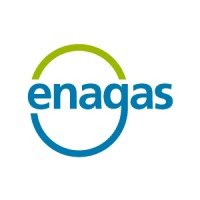Cabinet wants to designate Gasunie to develop hydrogen network in the North Sea

Minister Rob Jetten for Economic Affairs and Climate intends to designate Gasunie to develop a hydrogen network in the North Sea. He made this known to the House of Representatives today.
Offshore hydrogen, where hydrogen is produced using wind energy and brought ashore from the North Sea via hydrogen pipelines, will play an important role in the energy transition. It will help to unlock the enormous potential of energy production in the North Sea. This is necessary to make our society more sustainable and contributes to increasing our energy independence.
The Netherlands is uniquely positioned to realize offshore wind energy on a large scale and efficiently. Offshore wind energy contributes to a sustainable and affordable energy supply and will continue to grow strongly and quickly. It also makes the Netherlands and Europe less dependent on energy from other countries. With the further growth of offshore wind energy after 2030, the cabinet expects that hydrogen will also be produced in the North Sea in addition to electricity. This requires a hydrogen infrastructure.
Han Fennema, chairman of the board and CEO of Gasunie: ‘We are pleased that with this intention the cabinet underlines the vital role of hydrogen at sea for the future energy system. Following the example of the national onshore hydrogen network, Gasunie is ready to set to work in good cooperation with other partners to develop a hydrogen network in the North Sea and to realize that it is well connected to our national hydrogen network. We will expressly examine how the existing gas infrastructure in the North Sea can be reused.’
With hydrogen at sea, the wind energy produced is immediately converted into hydrogen, which is then transported to shore via pipelines. Such a pipeline can transport a lot of energy, so that you can collect energy from different places at sea with one pipeline and bring it to land. It is possible that part of the existing gas infrastructure in the North Sea, just like the hydrogen network on land, can be reused for this if it is available in time.
Green hydrogen plays an important role in the energy transition. For example, in making industry and heavy transport more sustainable. But also as a raw material in chemistry. In addition, the hydrogen infrastructure enables connections with other countries and, with its large-scale storage options, provides extra flexibility in our green energy supply. The North Sea is very important for this hydrogen development, also internationally. Last summer, the Netherlands signed the Esbjerg Declaration with Denmark, Germany and Belgium, in which they agreed to develop the North Sea as a ‘green power plant’. In 2030, they want to produce 65 gigawatts of wind at sea, of which 20 gigawatts are intended for making green hydrogen.
